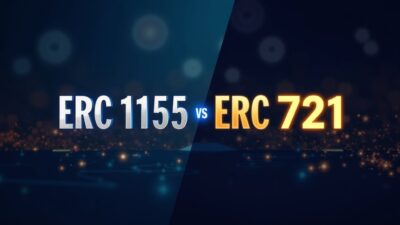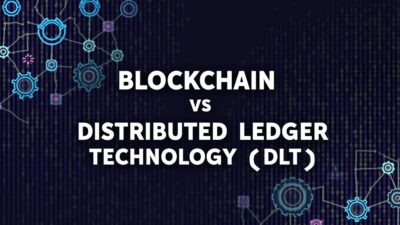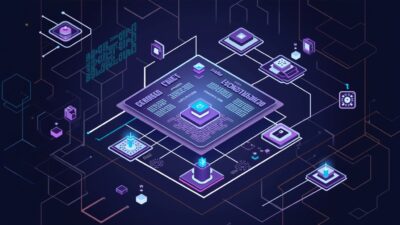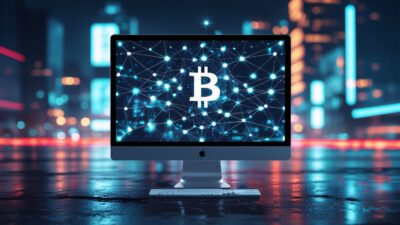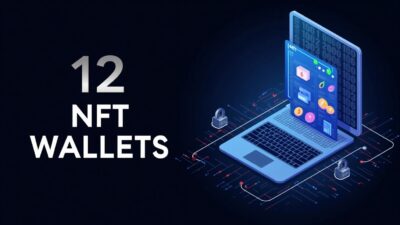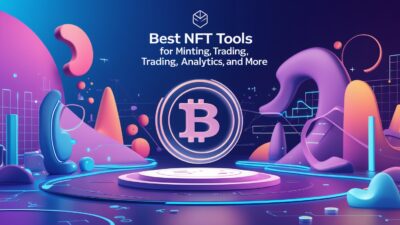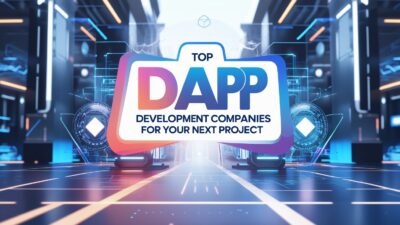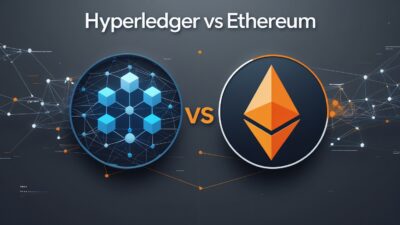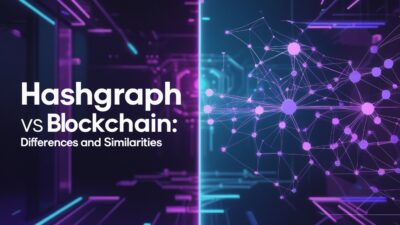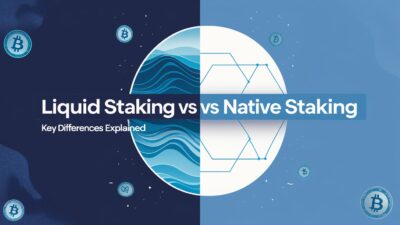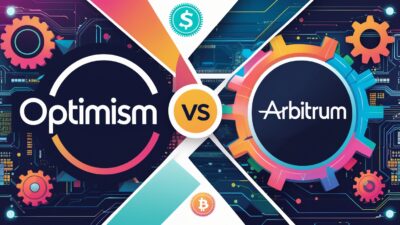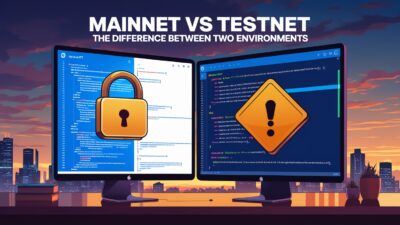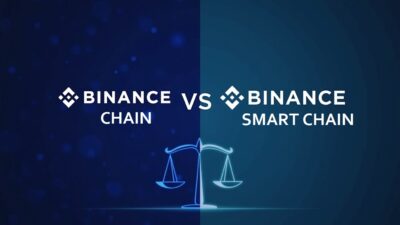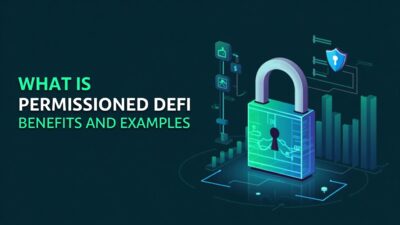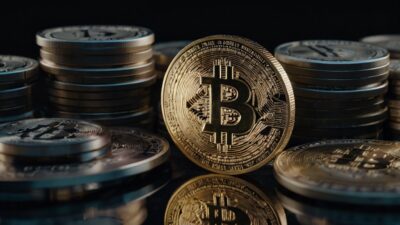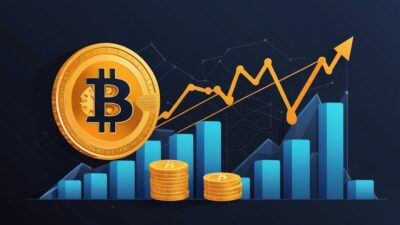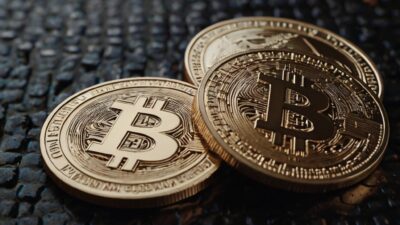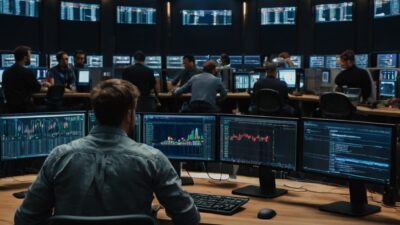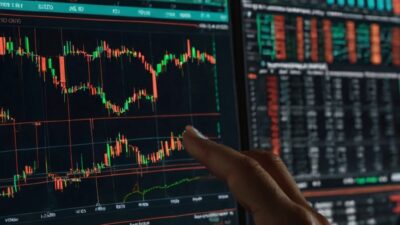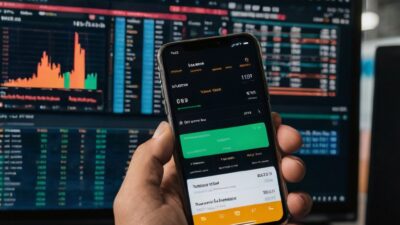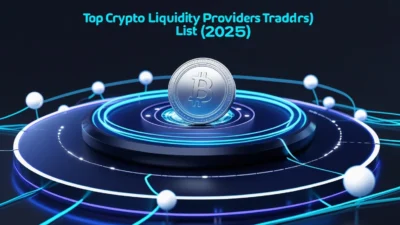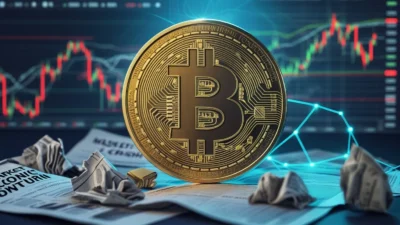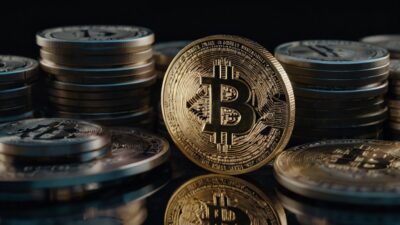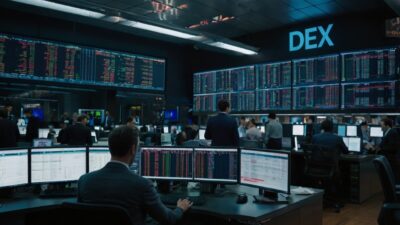
Have an unending appetite for crypto knowledge and a desire to save people from going bankrupt? Being a DeFi analyst can satisfy your curiosity and allow you to make informed decisions to help others with their financial investments.
As DeFi systems are evolving rapidly and crypto markets swing wildly, investing even in an established DeFi system can be scary. From government policies to hackers, people may lose all their crypto assets in an instant. This is where a DeFi analyst comes in with their expertise and in-depth market knowledge.
As a DeFi analyst, you help people grow with safe investments and educate communities with neutral research. This not only results in a massive gain in popularity, but as a good DeFi analyst, you can make serious bank in today’s difficult economy.
Learning how you can upskill yourself and what skills you can acquire to become a successful DeFi analyst is of utmost importance, as this knowledge can make or break your career.
What is a DeFi Analyst?
A DeFi analyst studies, interprets, and forecasts trends within the DeFi systems. This job entails protocol evaluation, tokenomics analysis, smart contract risk assessment, yield strategy optimization, on-chain data analysis, governance monitoring, market sentiment, and narrative tracking.
DeFi analysts help crypto hedge funds with their investments by researching protocols and risk modeling. They also help DAOs by drafting governance protocols and engaging with communities.
These analysts also work with financial publications to publish reports and insights for users to follow. They also help people through social media platforms about the risks and returns associated with particular DeFi systems.
DeFi analysts differ vastly from TradFi analysts as both work in different systems with separate rules guiding them. Their key differences are.
| Aspect | DeFi Analyst | TradFi Analyst |
| Data Sources | On-chain data and smart contracts | Company filings and market data |
| Assets | Tokens and NFTs | Stocks, bonds, or derivatives |
| Tools | DeFi dashboards | Bloomberg terminal and FactSet |
| Risk | Smart contract and protocol exploits | Credit risk and market volatility |
| Governance | Token-based governance by users | Shareholders and board members |
| Transparency | Fully transparent | Opaque |
| Regulatory Bodies | Unregulated | Heavily regulated |
Who Should Consider This Career?
The DeFi analysts are keen observers and excel at dissecting financial systems with technology and innovation. Any person who has an interest in finance and wants to explore systems outside government regulations with transparency should select the DeFi analyst job as a career.
People with an interest in emerging financial systems and who are comfortable with rapid changes are ideal candidates for this job.
Finance Professionals
People who are already involved with investment analysis, portfolio management, and risk assessment of a financial system should consider the DeFi analyst as a new career path with infinite potential.
As DeFi systems differ from traditional finance, people working in traditional finance need to learn about the crypto space and upskill themselves before making the jump.
Data Analysts
A DeFi analyst is all about collecting market data, analyzing it carefully, and then devising a plan to benefit from it. People who are already invested in data analysis, such as Python, SQL, or dashboard creation, should look at the DeFi analyst job as their next career.
Crypto Enthusiasts
Crypto enthusiasts are the best learners and analysts when it comes to making decisions and managing assets. They are well acquainted with DeFi protocols, blockchain technology, yield farming, and DAO governance, making it easier for them to adapt to this role.
Developers Transitioning to Analysts
Software developers who have already worked on smart contracts and blockchain technology but are looking to transition into data modelling are a perfect fit for the DeFi analyst job.
Students and Researchers
Students and finance researchers interested in decentralized systems can become a DeFi analyst. They can start from small communities and work their way up by learning the ins and outs of the DeFi systems.
Key Responsibilities of a DeFi Analyst
DeFi analysts work intensively around decentralized finance protocols and dissect them to gain a deeper understanding for investors and their employers. They forecast favorable outcomes and manage risks, resulting in higher yields for the firms or individuals they are working for.
Protocol Due Diligence
Protocol due diligence is the most important task for a DeFi analyst as it involves studying the mechanics, risks, and market position of a DeFi system.
They analyze a system’s native token via tokenomics to check whether it is inflationary or deflationary. They also check a token’s supply and its usage in a particular DeFi system.
As a DeFi analyst, their role also involves checking the token’s distribution and the incentives it offers to its holders. They also check if the tokens are artificially burned to reduce supply and increase scarcity.
A part of the protocol due diligence also involves assessing the risks associated with smart contracts. This involves checking audit history, evaluating bug bounty programs, analysing exploit history, and assessing the complexity of controls over the DeFi system.
A DeFi analyst also compares a DeFi protocol to its peers to analyze the competitive edge of the protocol. It involves assessing if the protocol has any unique features that separate it from the rest, if the UI/UX is innovative and user-friendly, if the community is strong and goal-driven, and what the revenue and TVL of the protocol are as compared to others.
On-Chain Data Analysis
On-chain data analysis involves extracting data directly from a blockchain activity and analyzing it, making it one of the most important duties of a DeFi analyst. The on-chain data refers to token transfers, transactions, smart contract interactions, wallets, TVL, APY, and gas usage.
This data determines the health and future potential of any DeFi system and is extremely important for the DeFi analyst to interpret the outcomes. However, this data is complex and can only be analyzed fully with the help of specific tools like Dune and Flipside Work.
A DeFi analyst must have a deep understanding of these tools and can use them to extract the information needed. These tools allow you to write SQL queries to extract specific data from a blockchain. You can track daily trading volume or top liquidity providers with these queries.
Once the data is queried, a DeFi analyst can filter it or join it with other assets to create meaningful metrics like the average gas fees of a blockchain. Once the filtering is done, the analyst can use built-in tools for visual representation, like charts and bar graphs, for the investors.
This allows firms to make decisions before the data hits mainstream, allowing them to either invest or withdraw to maximize their profits or minimize the risks.
Risk Assessment & Reporting
While offering good profits, DeFi systems are prone to risks and attacks by malicious entities. This can result in investors losing a ton of their assets instantly, which are almost impossible to recover due to the nature of decentralized systems.
A DeFi analyst must read a system carefully and detect these risks beforehand to avoid a catastrophic loss. This includes studying smart contracts of a DeFi system and their audit history.
Tools like Slither, MythX, and Certik can be used to audit smart contracts and identify vulnerabilities. DeFi analysts can also monitor unusual wallet activity, flash loan patterns, or sudden TVL changes in a blockchain system to analyze and report the findings to avoid potential investment risks.
DeFi analysts also categorize and quantify risks using various platforms. These risks include.
- Smart contract risks due to vulnerabilities in deployed code.
- Economic risk due to unsustainable yields.
- Governance risk due to centralized control.
- Oracle risk due to the manipulated price feed.
- Liquidity risk due to the inability of a user to exit without slippage.
- Regulatory risk due to compliance issues.
The final and most important role involves reporting the findings to investors and employers so they can make an informed decision. These include writing technical reports, creating risk dashboards with visual summaries, and public disclosure of findings.
Market Research & Trends
To stay ahead of the market and keep their investors happy, a DeFi analyst must follow market trends and do research regarding TVL, APY, and user behavior of various DeFi systems.
TVL refers to total value locked in a DeFi system. It represents user trust and liquidity depths of a system. A DeFi analyst must look closely at TVL signals as sudden drops indicate user loss or exploits and vice versa.
APY or annual percentage yield refers to the projected annual return from staking, lending, or liquidity provisions. DeFi analysts are required to monitor APY changes with tools like Zapper and Revert to detect signals and then form an informed report on their findings.
DeFi analysts are also required to analyze how users are interacting with a protocol. This involves their volume, frequency, and retention. A good and healthy DeFi system has all these metrics in positive territory, leading to investors’ trust as compared to a system bleeding users at an alarming rate.
Essential Skills & Qualifications
As a part of a DeFi analyst job, you require a mix of financial qualifications, technical expertise, and personal traits like critical thinking to excel in this field. These skills and qualifications can be divided into two distinct categories, hard and soft skills.
Hard Skills
Hard skills are the tools and expertise that are essential for a DeFi analyst. These include mastery over expert tools, learning coding languages, and understanding financial concepts.
The financial tools required to understand a DeFi system include.
- Dune Analytics: On-chain data querying using SQL.
- Flipside Crypto: Community-driven analytics and data access.
- Nansen: How to track wallets and analyze tokens.
- Zapper: Allows you to track your portfolio and explore protocols.
- Etherscan: Allows you to trace transactions and inspect smart contracts.
- Messari: Allows you to research markets.
- Excel: You can analyze scenarios and make quick calculations with it.
- Notion: Allows you to document research.
DeFi analysts also need to learn programming languages to have full control over their tools. These include.
- SQL: Allows querying data from a blockchain.
- Python: Allows you to analyze data and integrate APIs.
- JavaScript: You can use it to interact with libraries like ether.js.
- Solidity: Allows you to understand how smart contracts are made and deployed.
- R: For data visualization and statistical modeling.
A DeFi analyst must have full control over the following financial concepts.
- Tokenomics: It allows you to evaluate demand, supply, inflation, and incentives.
- Liquidity Pools: With this, you can understand AMMs, impermanent loss, and LP strategies.
- Staking and Yield Farming: Tells you if a mechanism is sustainable and how much reward it yields.
- TVL: How much capital a system has.
- Slippage and Spread: Allows you to analyze trading efficiency and market depth.
- Governance Models: How a DAO works and what its voting mechanisms are.
Soft Skills
As hard skills allow a DeFi analyst to make concrete reports and analysis, soft skills allow them to earn respect by making impactful insights. Soft skills include critical thinking, problem-solving, and communication with investors and communities.
Critical thinking is one of the pillars of a DeFi analyst’s job, as the crypto market is full of hype and fake narratives. As a DeFi analyst, you must filter out all the noise for your investors and provide clear signals.
This involves questioning assumptions behind governance protocols, evaluating risks, and spotting red flags in a system.
A DeFi analyst must also solve problems by building new mechanisms and troubleshooting data discrepancies in a blockchain. With good communication, an analyst can successfully pass on their findings to a community and convince them to act upon them through the use of visual dashboards.
How to Become a DeFi Analyst
Becoming a DeFi analyst is a difficult but extremely rewarding job as it involves financial knowledge, technical mastery, and communication skills like no other. To become a part of the crypto family and help guide others to success, you will need the following skills and knowledge to become a successful DeFi analyst.
Build Foundational DeFi Knowledge
To become a good DeFi analyst, you must start by building your foundational DeFi knowledge. It involves studying protocol whitepapers, which contain blueprints of a DeFi project. This knowledge can be useful in learning tokenomics, the goals of a system, and how its governance works.
This can enhance your DeFi knowledge immensely and explain the purpose of DeFi, making it easier for you to analyze it. You can start with the Uniswap whitepaper, MakerDAO documentation, and Aave protocol whitepaper.
DeFi primitives are building blocks of any DeFi system, and learning about them can help you evaluate a system easily. These include stablecoins, DEXs, trading, yield farming, derivatives, DAO, and governance.
While whitepapers provide the inception logic and goals of a DeFi system, detailed documentation goes beyond it, as it offers an unparalleled insight into a DeFi system’s operations. Ethereum and DefiLlama offer detailed documents that you can read to learn about their governance and smart contracts.
Develop Analytical & Technical Skills
The best way to learn and analyze any DeFi system is by having hands-on experience. It can be done by using programming languages like SQL or using tools like Excel. You can also learn Python, as it is the go-to language for data analysis, documentation, and accessing blockchains.
With Python, you can learn data wrangling, API interaction, visualization, and smart contract analysis. Don’t stop there. Go a step further and master SQL to write queries that can extract data from a blockchain.
This data includes token transfers and current transactions to help you prepare for future trends. You can also track wallet activity and gas fees across a blockchain with the help of SQL.
Tools like Excel, Google Sheets, and Token Terminal allow you to create financial models that help you with assessing a protocol’s efficiency, model dilution, incentive sustainability, and yield strategies.
Gain Practical Experience & Build Portfolio
On the path to becoming a certified DeFi analyst, you can gain practical experience and build your portfolio by publishing dashboards and writing research reports.
You can use tools like Dune Analytics and Flipside Crypto to publish your dashboard to demonstrate your ability to extract and analyze data from certain blockchains.
With your knowledge of a DeFi system, you can publish a well-researched report of your findings. Make sure that the report is easy to read and doesn’t mislead crypto users with false information. You can use personal blogs, social media groups, Twitter threads, or GitHub repositories to publish your reports.
To build your portfolio, you can contribute to active projects like applying for bounties or joining a DAO. With these steps, you will gain a reputation in the crypto circles, and these will help you secure a good DeFi analyst job.
Top DeFi Analyst Jobs and Where to Find Them
With the skills acquired above and after creating a strong portfolio, you can start applying for a DeFi analyst job in the following firms.
| Platform | Description |
| web3.career | Provides curated jobs for DeFi analysts across startups and DAOs. |
| CryptoJobsList | The biggest crypto job board with a lot of DeFi analyst openings. |
| Angel.co | Startup-focused platform with DeFi analyst job openings. |
| Remote3 | Provides real-time updates on job openings, including DeFi analysts. |
You can also apply to the following high-profile companies as a DeFi analyst to expand your expertise and have a secure future in the crypto industry.
- Gauntlet
- Nansen
- Flare
- Nexo
- RockawayX
Below is a list of DAOs that are actively hiring DeFi analysts and always have a job opening.
- Llama
- Index Coop
- MakerDAO
- Aave Grants DAO
DeFi Analyst Salary & Career Outlook
| Level | Salary/yo | Typical Employer |
| Entry Level | $60k-$90k | Freelance or DAOs |
| Mid Level | $90k-$130k | DefI protocols and crypto funds |
| Quant | $130k-$200k+ | VCs, trading firms, Gauntlet, and MakerDAO |
However, the salaries for DeFi analysts vary by region. The average salary in the US is around $90k, while it is €75k in Europe. The global average is $72k, which is far less than what a DeFi analyst earns in the US.
With DeFi systems growing at lightning speed, there are a lot of job opportunities for DeFi analysts with skills like blockchain fundamentals, on-chain data analysis, financial modeling, risk management, governance frameworks, and tokenomics.
With mastery over these skills, you can easily land a starter job with a DAO and can build your portfolio to move to the next and better role.
Learn and Grow as a DeFi Analyst With Dypto Crypto
Landing a job as a DeFi analyst is not an easy task in an already oversaturated industry. However, you can upskill yourself and gain practical knowledge by joining Dypto-Crypto for free. We also offer job insights and point you towards active job boards to help land a role as a DeFi analyst.
With our paid DeFi courses, you can take your knowledge to the next level. We also offer a free weekly newsletter that you can read to satisfy your crypto needs. What are you waiting for? Join the largest growing crypto network and land your dream job with our help right now.
Frequently Asked Questions (FAQs)
Q: What is a DeFi Analyst?
A: A DeFi analyst analyzes DeFi protocols, researches crypto markets, manages risks, and evaluates investments to advise partners or employers.
Q: How much does a DeFi Analyst make?
A: Salaries for DeFi analysts range from $70k-$120k on average, depending on the region and their skill levels.
Q: How do I get a job in DeFi?
A: By learning the fundamentals, acquiring in-demand skills, building a great portfolio, connecting with communities, and then applying strategically for jobs that match your skills.
Q: Do I need a finance background to become a DeFi analyst?
A: No, you can become a DeFi analyst without a finance background, as the skills required are not limited to finance only. However, having a finance background makes it easier to understand how transactions work, making it easier to predict outcomes of a particular DeFi.
Q: How can I build a public portfolio as a DeFi analyst?
A: You can create an amazing public portfolio by creating on-chain dashboards, publishing reports, contributing to DAOs, sharing videos amongst communities, and building a personal website.

